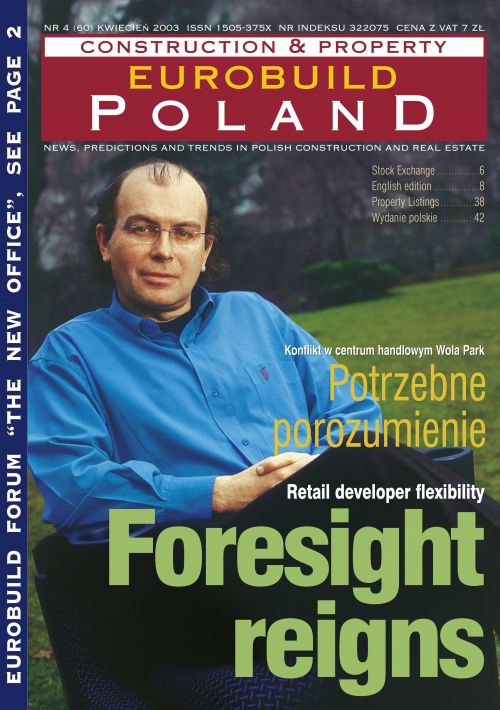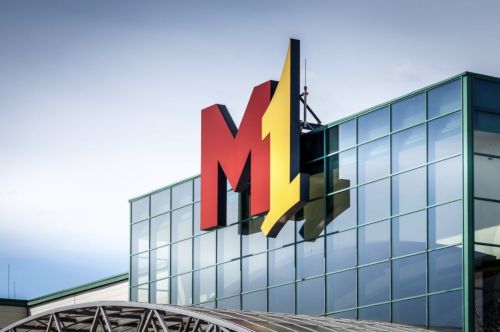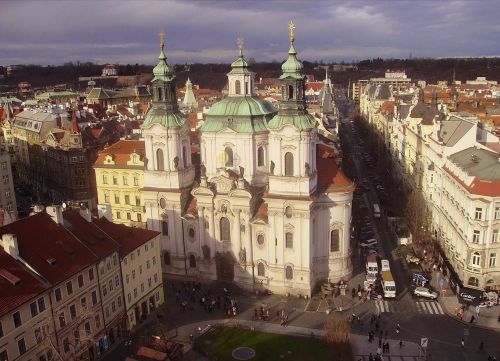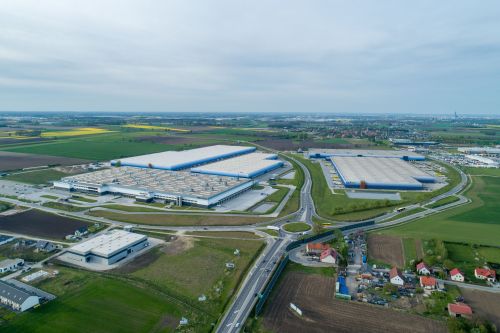Poland opens up to the big bear
One of the prominent spectacles at this year's MIPIM fair was the greater numbers of the curious visiting the Russian rather than Polish stalls. After the years of chaos and crisis, the big bear seems to be pulling itself together while the Polish market is still struggling
Not so long ago, Poland was an attractive choice for
developers and investors, not only because it is the biggest market in
post-Communist Central Europe, but also because it offered them a possible
springboard or gateway to the huge possibilities in Russia. Does the evidence at
MIPIM suggest Poland is now being bypassed on the journey further east?
Perhaps the most significant difference between the two markets at the moment is
that one, Russia, is "buoyant in all sectors", according to DTZ
Russia's Managing Director Stephen Wilson and the other, Poland, as is well
known here, has struggled over the past few years. The increased political
stability Russia is experiencing under President Vladimir Putin, those huge
conurbations of St. Petersburg, with nearly five million inhabitants and the
capital Moscow, and the positive reversal of its economic fortunes recently make
it a very attractive market for real estate players. Warsaw however, with the
high vacancy rates in its office buildings and trouble and strife in its retail
centres could be forgiven for looking enviously in an easterly direction.
Unique in Moscow
Ian Elliot of Jones Lang LaSalle, who divides his working time between Warsaw
and Moscow, doesn't quite see Poland as a 'gateway' to its eastern neighbour,
though he acknowledges that there are "considerable similarities"
between the two, as far as retail developments are concerned. With a population
of twelve million he says, however, "Moscow is out on its own". This
number of people in one city, which dwarfs Poland's major towns put together,
makes it a unique market in Europe. Elliot cites the example of furniture
retailer IKEA who although having waited up to seven years, because of lengthy
wrangling with officialdom, to begin operating in Russia with a shop in Moscow,
enjoy a turnover in that first outlet, which is higher than all its shops in
Poland combined.
Despite the clear differences in scale between the two markets, Elliot will
qualify the contrast by acknowledging that developers have found their, often
difficult, experiences with bureaucracy and the law in Central Europe useful
when starting business in Russia.
Jeroen Van der Toolen of The Ghelamco Group, which is just about to embark on
its first projects in Moscow from a Polish base, says of the relationship
between the two that, "companies active on the Polish market for say ten
years, have experienced its development from a purely emerging market, to one
that's much more mature. This experience is very valuable when you enter another
new emerging market," such as Russia.
The legal risk
However, Jerzy Nemling of GVA Immoconsult, who spent time working in Kiev and
has some knowledge of the Moscow market, states that, "the legal risk
remains very big in Russia and you cannot compare it to Poland". For one
thing, as Ian Elliot points out, in Russia a foreign firm needs a local partner,
not a requirement in Poland, for another, according to Marcus Leininger of
mortgage bank Eurohypo, investors such as his company, which is active in Poland,
"cannot obtain full ownership of real estate, as only leasehold structures
currently exist" in Russia. This is one reason why according to Jerzy
Nemling, Russia "is a developers' not an investors' market", whereas
Poland attracts both.
Jeroen van der Toolen counters that, "developers are investors!" and
that Russia is simply at an earlier stage than Poland in the growth of its
commercial real estate. In Poland, he says, the institutional/investment market,
"is still in its infancy" but when you compare it to Moscow it is
"much more developed". For Marcus Leininger, who also believes Poland
to be a gateway market onto Russia, which nonetheless for him, is still not
quite ripe enough for institutional real estate investors, the latter "took
their first steps in Poland, are bringing their concept to the Baltic countries
first and will go into Russia in the future".
Poles go Russian
If there is a fairly indisputable sense in which Poland is a gateway onto Russia,
it is in the incidence of Polish general constructors carrying out major
projects on their neighbour's soil. Mostostal Export has been operating in
Russia for some time now and it has been very active in various sectors,
including retail, residential and office. According to the company's recent
report, outlining its forecasts for 2003, the contrast between its performance
in its domestic market and Russia couldn't be more marked. For Poland, it states
that, "the outcome in the construction sector has directly and adversely
affected the standing of Mostostal-Export" whereas "Russia is one of
the markets with a clear and significant growth in the construction sector".
As well constructing a chain of supermarkets for the Russian firm Perekrestok,
it also won a USD 150 mln contract to build apartment blocks in Moscow, in
September last year, and has four other projects underway this year in the
country.





















































